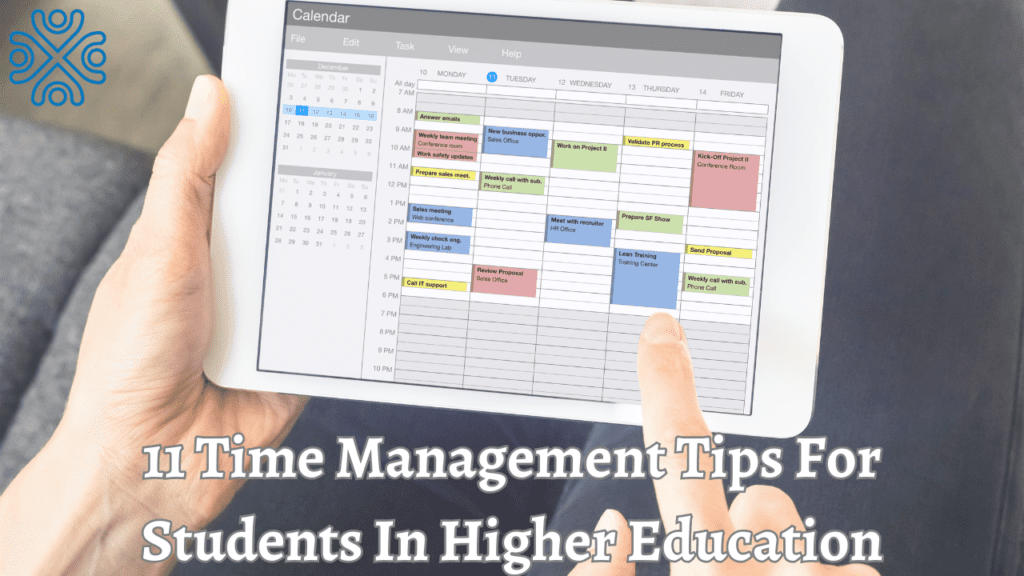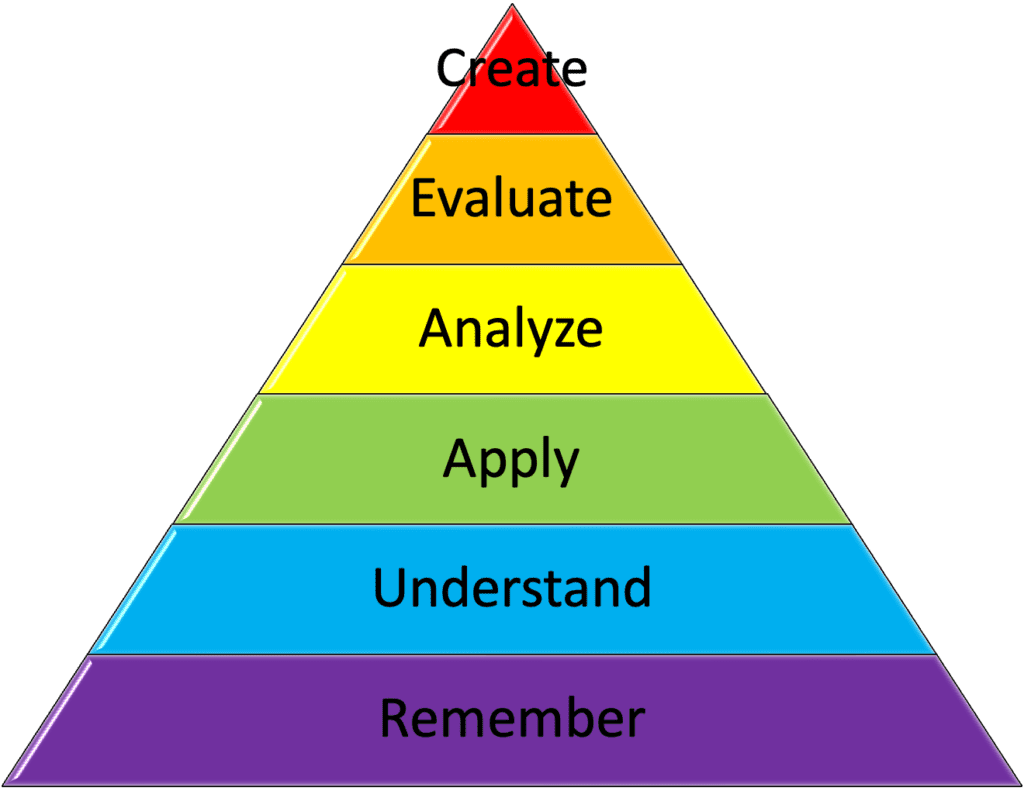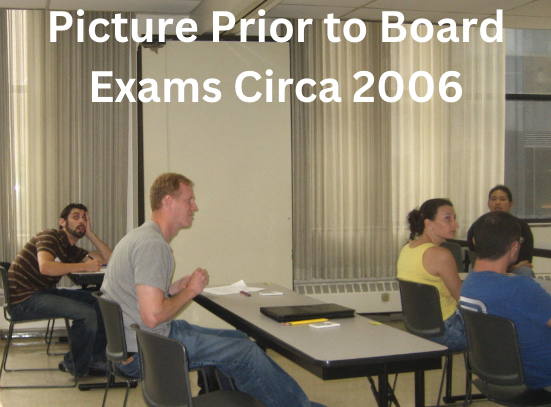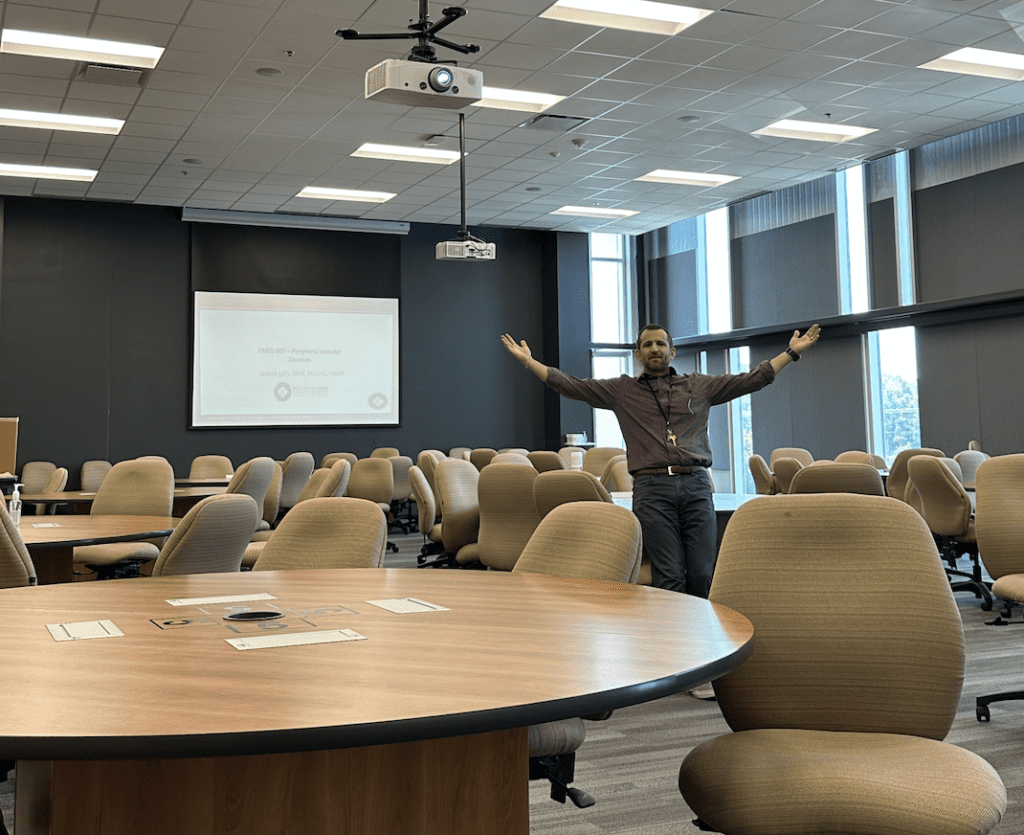Authored by Dr. Leland Jaffe; Associate Dean and Professor; Published on February 28, 2024
Time management is a crucial skill for success in higher education. Juggling coursework, extracurricular activities, and personal commitments can be overwhelming without proper organization and planning. Fortunately, with the right strategies, students (and professionals) can optimize their time and achieve their academic goals while still maintaining a healthy work-life balance. Here are 11 time management tips tailored specifically for students in higher education:
1. Set Clear and Achievable Smart Goals:
The first step is to define your short-term and long-term goals. Break them down into smaller, manageable tasks to avoid feeling overwhelmed. Having a clear direction is the best way to help you prioritize and manage your time effectively. By setting realistic goals, students can maintain focus, motivation, and a clear sense of direction throughout their educational path. Whether it’s aiming for a specific GPA, completing a certain number of credits per semester, or gaining hands-on experience through internships or research projects, setting achievable milestones helps students track their progress and celebrate their achievements along the way. Moreover, realistic goals promote a healthy balance between academic pursuits and other aspects of life, fostering overall well-being and success in higher education.
2. Create a Schedule / To-do list:
Develop a weekly schedule that includes all your classes, study sessions, work commitments, and personal activities. Use a planner or digital calendar to keep track of deadlines and appointments. Stick to your schedule as much as possible to establish a routine. My personal favorite is to create short-term and long-term to-do lists using the ‘stickies‘ feature on the Macbook desktop, as well as utilizing my Google calendar. This is a great way for me to track my daily tasks and responsibilities and has helped me gain control of my time. Don’t you feel that sense of satisfaction when you delete an item from your to-do list?!?
3. Prioritize Tasks That Require Immediate Attention:
Identify the most important tasks that need your immediate attention. Try to complete tasks that are high-priority first, then allocate time for less urgent tasks. Learn to say ‘no’ to distractions that may derail your progress. Triage (a term we use in medicine), when applied to task management, involves prioritizing tasks based on their importance and urgency. To effectively triage tasks, start by assessing each task’s impact on your goals, deadlines, and overall objectives. Identify tasks that are time-sensitive or have impending deadlines, as these typically demand your immediate attention. Next, consider the potential consequences of not completing certain tasks promptly, focusing on those that could lead to significant setbacks or missed opportunities.
Additionally, evaluate tasks based on their alignment with overarching priorities or strategic initiatives. By categorizing tasks according to their urgency and importance, you can allocate your time and resources more efficiently, ensuring that critical tasks are addressed promptly while less crucial ones can be deferred or delegated as necessary. Regularly reassessing and adjusting your priorities based on changing circumstances will further optimize your triage process, allowing you to stay focused on what matters most.
4. Use Time Blocking:
Allocate a specific time block for studying, attending classes, and engaging in extracurricular activities. By dedicating enough time to each task, you can increase productivity, minimize procrastination, and have better control of your time. If you’re having trouble with this, consider using a time management app such as Clockify or Focus Booster. I personally don’t use an app, however, I’ve found that blocking time for certain activities not only keeps me on schedule but helps me to achieve my specific goals for the day.
5. Break Tasks into Smaller Steps:
Large projects or assignments can seem daunting at first glance. Break them down into smaller, manageable tasks and tackle them one step at a time. Celebrate your progress as you accomplish each milestone. Take regular breaks to avoid burnout and a decrease in your productivity.
6. Avoid Multitasking (when possible):
While it may seem like you’re getting more done, multitasking often leads to decreased productivity and lower-quality work. Instead, focus on one specific task at a time and give it your full attention until it’s completed. Steering clear of social media while studying/working plays an important role in good time management skills. Social media platforms, with their endless streams of content and notifications, have a remarkable ability to consume vast amounts of time, often without yielding significant returns. By consciously limiting or eliminating social media usage, individuals can reclaim valuable time that can be redirected toward more productive endeavors. Avoiding the temptation to constantly check feeds or engage in mindless scrolling enables individuals to maintain focus and concentration on tasks at hand, fostering greater efficiency and effectiveness in their work or personal pursuits. Moreover, reducing social media usage can lead to improved mental well-being by minimizing distractions and allowing for more meaningful interactions and experiences offline.
However, multitasking is not always negative…
Multitasking in higher education can offer several benefits when managed effectively. By juggling similar tasks simultaneously, students can maximize their productivity and time management skills. For instance, while listening to a lecture, students can also take notes, review study materials, or work on assignments. This approach allows for the efficient utilization of time and enhances retention by reinforcing learning through different modalities.
Additionally, multitasking can cultivate adaptability and the ability to switch between tasks seamlessly, which are essential skills in today’s fast-paced academic and professional environments. Furthermore, engaging in varied tasks simultaneously can stimulate creativity and critical thinking by exposing students to diverse perspectives and challenges. However, students must strike a balance and prioritize tasks effectively to avoid overwhelm and maintain focus on the quality of their work. I’ve found that the key to multitasking is to spend less time on distractions such as social media, and more time focused on my task at hand.
7. Set Realistic Deadlines:
Be realistic when setting deadlines for your assignments and projects. Avoid procrastination by breaking down tasks into smaller chunks and setting incremental deadlines to keep yourself accountable.
8. Utilize Productive Breaks:
Take short breaks between study sessions to recharge and avoid burnout. Use this time to stretch, go for a walk, or engage in a relaxing activity. By giving your mind a chance to rest, you’ll return to your work with renewed focus and energy which will allow you to regain focus on complex tasks. When I’m sitting and working for long periods, I will often take a break to play guitar, go for a short walk, or work on a blog post! However, make sure to set a time limit on these breaks, or you could easily find yourself distracted and spending an excess amount of time on social media or other nonproductive activities.
9. Seek help when needed:
Don’t hesitate to reach out to professors, classmates, or academic advisors if you’re struggling with your coursework or need additional support. Remember that asking for help is a sign of strength, not weakness.
10. Practice Self-Care:
Remember to prioritize your physical and mental health. Get enough sleep, eat nutritious meals, and exercise regularly to maintain optimal health. Schedule time for relaxation and hobbies to prevent burnout and maintain a better work-life balance – all of which lead to less stress! I have never been a supporter of pulling an all-nighter trying to study or prepare for a project. Studying while tired can significantly diminish the effectiveness of the learning process. When students are exhausted, their cognitive abilities, such as memory retention, concentration, and problem-solving skills, are impaired. Fatigue can lead to difficulty in processing information, resulting in decreased comprehension and retention of study material. Furthermore, tiredness may hinder motivation and engagement, making it challenging to stay focused and productive during study sessions. Ultimately, attempting to study while tired can lead to subpar academic performance and increased frustration. Students must prioritize adequate rest and self-care to optimize their learning potential and achieve academic success.
11. The Pomodoro Method for Time Management:
This is a popular time management technique designed to enhance productivity and focus. It involves breaking work into intervals, traditionally 25 minutes in duration, separated by short 5-minute breaks. Named after the Italian word for tomato, the method was developed by Francesco Cirillo in the late 1980s. The Pomodoro Technique aims to capitalize on the brain’s ability to maintain concentration for short periods, known as the “Pomodoro.” After completing four Pomodoros, typically amounting to about two hours of focused work, a longer break of around 15-30 minutes is recommended to rest and recharge. This method helps combat procrastination by breaking tasks into manageable chunks and providing regular opportunities for rest and rejuvenation. Additionally, it encourages a sense of urgency and accountability, as individuals strive to accomplish tasks within each timed interval. The Pomodoro Method has gained widespread adoption for its simplicity and ability to boost productivity while minimizing burnout.
Time Management Tips – Conclusion
In conclusion, mastering these time management tips is essential for success in higher education and your professional life. By implementing these different techniques into your daily schedule, you can effectively manage your time, reduce stress levels, and achieve your goals while still enjoying your academic experience! Many people ask me about my strategies for balancing my work and home life, and my answer is usually similar. As I’ve gotten older, I’ve learned how to accomplish more during the 24 hours we’re all given daily. I’ve been employing these essential time management tips, which have certainly paid off! You’ll develop the skills needed to thrive professionally and personally with practice and dedication.
Comment below on other helpful time management tips!







